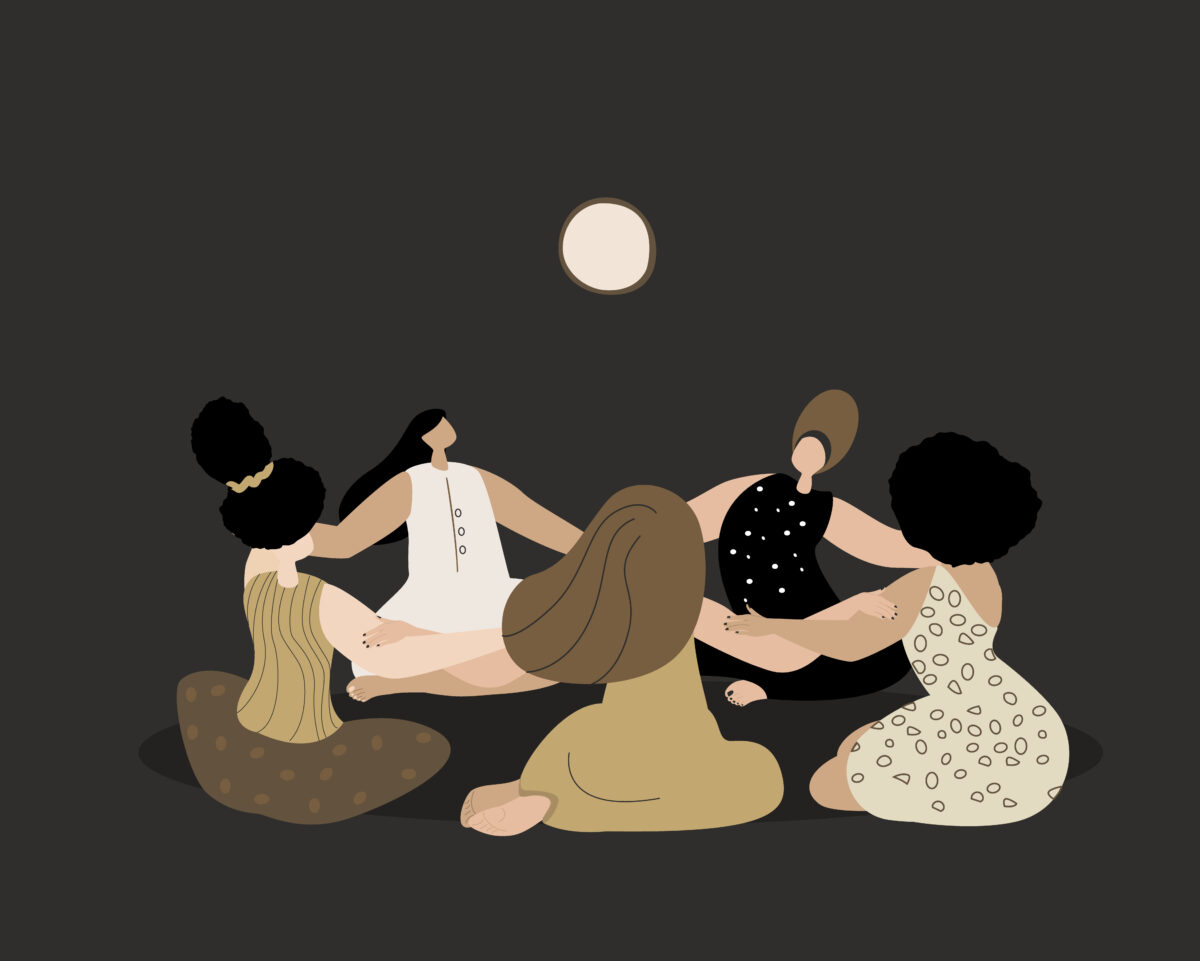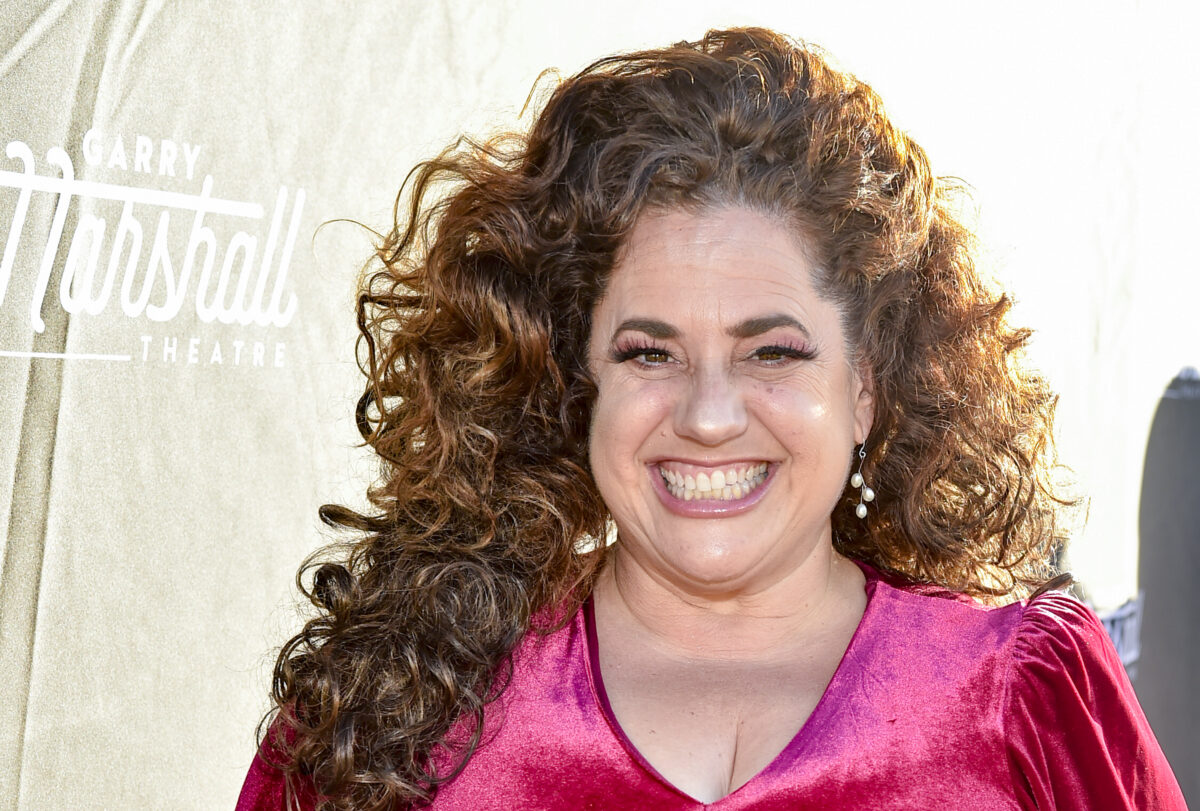Your Daily Phil: JDAIM kicks off + Israeli collaboration in Africa
Good Thursday morning and happy Groundhog Day!
In today’s Your Daily Phil, we cover Israeli humanitarian aid groups working together in Africa, and feature op-eds by Svivah’s Ariele Mortkowitz on spiritual communities, and by JFNA’s Julia Malkin Reger on young leadership. We’ll start with the expansion of Jewish Disability Awareness, Acceptance and Inclusion Month, which began yesterday.
As February starts, Pamela Schuller is in high demand. After growing up with severe Tourette syndrome, Schuller developed a blend of comedy and disability and mental health advocacy that shifted her perspective on her own ability and helped her reach more than 100,000 kids, teens and adults nationally and in six countries.
“Do I wish that I could sometimes switch the symptoms of Tourette’s?” Schuller asked during an appearance at UpStart’s Collaboratory conference in 2018, about the neurological disorder that causes uncontrollable body movements, or tics. “Absolutely. Like right now I’m winking and barking a lot. Wouldn’t it be great if tomorrow morning I woke up with uncontrollable jazz hands? Somebody would be like, ‘Is that Pam’s Tourette’s?’ And people would say ‘No, she’s just fabulous.’”
This month Schuller isss performing for nine Jewish communities around the country — colleges, high school programs, congregations and JCCs, with some events virtual and others in person. This intense schedule comes courtesy of Jewish Disability Awareness, Acceptance and Inclusion Month (most often pronounced “J-Dame” and written JDAIM). Organizations across the country are launching research projects, programs and other initiatives in support of Jewish people with disabilities.
Shelly Christensen and her colleagues in a group called the Jewish Special Education Consortium launched JDAIM in February 2009 with the goal of uniting Jewish communities to focus on including people with disabilities in communal life. Institutions in eight Jewish communities participated that year, most of them screening “Praying with Lior,” a 2008 film about a teenager with Down syndrome preparing for his bar mitzvah.
“It was designed to be a grassroots kind of thing,” Christensen, now senior director of faith inclusion and belonging at RespectAbility, told eJewishPhilanthropy. “Synagogues did events or programs, they had speakers, they had ‘Inclusion Shabbat.’ Like, isn’t every Shabbat Inclusion Shabbat? That is the hope!”
Christensen added that the events “really brought our community together.” In 2010, the Jewish Federations of North America and the Religious Action Center, a Washington, D.C.-based Reform organization, held the first Jewish Disability Advocacy Day (JDAD) in February on Capitol Hill, a now-annual program that encourages legislators to enact policies that benefit people with disabilities. Christensen added that all Jewish denominations have embraced JDAIM in some way.
collaborative effort


The lives of a group of children from South Sudan hung in the balance, the promise of heart surgery resting more than 1,700 miles away in Tel Aviv. The Israeli nonprofit Save a Child’s Heart, which offers life-saving procedures in Israel to children from all over the world, had recently identified several in the impoverished African country who were excellent candidates for the surgery. “We saw them and we knew we could help them, but we didn’t have the logistical support on the ground,” said Simon Fisher, SACH’s executive director. Now, such support in Africa is fast becoming a reality, Linda Gradstein reports for eJewishPhilanthropy.
Making the connections: The three organizations that are collaborating are SACH, IsraAid and Innovation: Africa. IsraAid CEO Yotam Polizer, who last month was announced as the recipient of the Charles Bronfman Prize, said that each of the three organizations has a different expertise and that collaboration can benefit all of them, such as in the case of the Sudanese children who required heart surgery. “We hope we can use the collaboration to reach out to children who we otherwise would not even identify and be able to bring them to Israel,” Fisher said.
Joint efforts: Sivan Yaari, CEO of Innovation: Africa, said that collaboration with IsraAid is beneficial to both organizations; while there is some overlap, each operates in different countries in Africa and can therefore share knowledge. The organization employs 130 people, mostly engineers, throughout the continent. She said that she has hired employees from IsraAid, IsraAid has hired her employees and the two organizations maintain good relations. This week, the two groups are conducting a joint training with geophysicists in Uganda to learn about issues surrounding drilling wells.
Addressing a need: The foundation encouraging this collaboration was founded by South Africans Nathan and Frances Kirsh. The Kirsh Foundation focuses on southern Africa development through microfinance loans that have helped nearly 27,000 businesses, and encourages collaboration among all of its grantees. That’s especially true in Africa, given the continent’s many challenges. Recently, the ongoing humanitarian crisis in Ukraine has captured the world’s attention, and IsraAid has been active there as well. But the crisis in Africa is worsening because of a severe drought and climate change. “The Kirsh Foundation understands what it takes to build a sustainable and efficient organization,” Yaari said. “They understand that to be efficient you have to hire the right team and empower the local teams on the ground. In every country we work in, we hire local people and then transfer the knowledge and technology from Israel.”
gathering together
Rethinking ‘spiritual’ communities — Jewish women’s wisdom circles


“In 2018, after a fall full of Jewish holidays, six women sat around a kitchen table in Washington, D.C., to answer two questions: What are Jewish women missing and needing in a communal setting most urgently in this moment? And how do we ensure that the structure of ‘Jewish community’ is operating as a tool to empower individual women by coming together as a collective? These two questions formed the backbone of Svivah, Hebrew for environment or surroundings, and inform our programming to this day,” Ariele Mortkowitz, founder of Svivah, writes in an opinion piece in eJewishPhilanthropy.
Strengthening women’s lives: “We gathered women from across the Greater Washington, D.C., area and centered the conversations between the people in the room, using our… educators as connectors and facilitators, rather than as centerpieces. We decided that one of Svivah’s pillars needed to be a commitment to widening the pipelines of access to communal support structures and organizations that make Jewish women’s lives stronger. With a captive audience, we were going to make sure women knew about the communal resources that existed to serve them – and we were going to destigmatize and normalize making use of their services. We created spaces of welcoming and equity, intentionally avoiding traditional Jewish gathering places. We committed ourselves to always compensating our facilitators for their time and talent, a practice that is not yet universally accepted, particularly when it comes to women educators.”
Increasing accessibility: “As we closed out our first successful program year, we found ourselves facing a global pandemic and a very shaky future. When the pandemic hit, we shifted immediately to a virtual presence, which increased our reach and established Svivah as an international entity. Our COVID silver lining was accessibility – our programming attracted women who wanted to be part of the conversations we were having, and it allowed us to bring together educators from around the world in teaching partnerships that we could never have created in person. We shifted Svivah’s focus: What could our Jewish communities look like if women’s voices were centered, if their Torah was amplified, if their lived experience was prioritized, and if the traditional fault lines between Jewish communities were erased?”
tomorrow’s leaders


“Growing up in a suburb of Toronto, Brooklyn Bujara always knew she was Jewish, because her mother was. But she knew almost nothing about her Jewish heritage; she had no experience of going to synagogue, celebrating Jewish holidays or being friends with other Jewish children. When, at age 7, she lost her mother, she knew only that she needed to place stones on her mother’s tombstone when she visited her grave,” writes Julia Malkin Reger, managing director of Jewish Changemakers at the Jewish Federations of North America, in an opinion piece for eJewishPhilanthropy.
The social network: “When she reached college, a family friend encouraged Brooklyn to go on Birthright, and it was the Birthright app that introduced her to the Jewish Changemakers Fellowship. Jewish Changemakers is a robust leadership development program for young adults ages 20 to 25 that offers a broad range of opportunities to revitalize Jewish life both across the continent and around the globe. Brooklyn’s participation in Jewish Changemakers enabled her to network with her peers from across the spectrum of Jewish religious observance, and to share her burgeoning passion for Zionism.”
It’s time to change: “Brooklyn’s experience is not unique; since its founding in 2020, Jewish Changemakers is orchestrating a sea change in the way we prepare the next generation of Jewish leaders. Organized by the Jewish Federations of North America, which comprises 146 local federations across the United States and Canada, the virtual leadership development program has already become a crucial part of the Jewish communal ecosystem, transforming the lives of 1,000 Jewish Changemakers a year and those whom they are trained to serve.”
Worthy Reads
Refugee Representation: Since Sana Ali Mustafa, a Syrian refugee, arrived in the U.S. 10 years ago, he has been invited to events to raise funds for and awareness about the refugee crisis, but none of the panels included refugees, he writes in The Chronicle of Philanthropy. “I was angry. I had lost a home, a country, and a father because we demanded rights from the Syrian regime, and now in exile my voice was being sidelined. Organizations that said they would protect and empower forcibly displaced persons like me treated us as voiceless victims. On the rare occasions we were invited to speak at events, it was only to share traumatizing stories of survival, not our ideas for solutions. My experience is all too common. Activists among the forcibly displaced have a range of stories about the discrimination they face trying to support their communities. They are not invited to conferences or offered jobs in refugee-rights organizations because of the biased view that their very identities as members of the communities being served constitute a conflict of interest. Others describe blatant acts of discrimination, such as being forced to use a different entrance from nonrefugee colleagues when attending meetings — for what are deemed ‘security reasons.’ …Refugee-led organizations and advocates are too often treated as a mere vehicle of implementation — carrying out projects that international organizations design with little to no input from communities, and sometimes even without pay.” [ChronicleofPhilanthropy]
Be Bold: Even in an unsteady economy, there are ways for nonprofits to secure gifts to fund their organizational missions, Jim Eskin writes in NonProfitPRO, including asking unabashedly for unrestricted gifts and preparing for the transfer of baby boomer wealth, the largest in history. “MacKenzie Scott set an inspiring example by contributing $14 billion in unrestricted funds, recognizing that recipients understand best how to put the money to good use. Too many nonprofits shy away from such solicitations with self-defeating attitudes that donors won’t respond favorably. Consider that people don’t designate the purpose when investing in the stock market and rely on monitoring the company’s bottom line performance. Why should nonprofits be any different? Ask unabashedly for unrestricted gifts that empower your organization to use the funds when and where needed most.” [NonProfitPRO]
Holy Shift: A new survey from GivingUSA and the fundraising firm Dunham+Company found that millennials are giving to charity 40% more in 2022 than they did in 2016, while average annual giving fell by 4% among Gen X households, and 12% among baby boomers, Emily Haynes writes in The Chronicle of Philanthropy. “The survey also showed an uptick in millennials’ attendance of virtual or in-person religious services — and a decline in the Gen X and boomer cohorts. In 2016, 49 percent of millennials said they attended services ‘at least a few times a month.’ By 2022, that share of millennials had grown to 67 percent. ‘I’m more surprised by how much it increased, not that it did,’ [chair of Dunham+Company Rick] Dunham says. With more of the generation now raising families, he says, they’re likely considering how to incorporate religion into their children’s upbringing. Gen X and boomer church-attendance rates kept roughly apace with one another. In 2016, 48 percent of Gen X-ers and 46 percent of boomers said they went to church a few times a month or more. Those shares fell to 45 percent and 44 percent, respectively. Dunham speculates that millennials’ bigger annual charitable gifts could be correlated with their closer ties to houses of worship. ‘Generally, you’ll find that there is a correlation between frequency of attendance of religious services and giving,’ he says.” [ChronicleofPhilanthropy]
Around the Web
A suspect in the Molotov cocktail attack on a New Jersey synagogue last weekend, Nicholas Malindretos, 26, has been arrested…
More than 170 Jewish leaders, a majority of them rabbis and cantors, have signed an open letter stating that “the new [Israeli] government’s direction mirrors anti-democratic trends that we see arising elsewhere — in other nations and here in the U.S., rather than reinforcing the shared democratic values that are foundational to the U.S.-Israel relationship.”
The signatories proclaim their support for strong U.S.-Israel ties, and go on to criticize several of the new government’s proposals — including its proposed judicial reform and calls to amend the Law of Return, conversion policy and other matters. The letter is on the website of the Nexus Document, an alternative to the International Holocaust Remembrance Alliance’s working definition of antisemitism.
Signatories include current and former heads of large Jewish organizations, including former AIPAC Executive Director Tom Dine; former Sen. Russ Feingold (D-WI); Alan Solow, former chair of the Conference of Presidents of Major American Jewish Organizations; JTS Rabbinical School Dean Rabbi Ayelet Cohen; Joe Kanfer, founding director of the Lippman Kanfer Foundation for Living Torah; Reconstructionist Rabbinical Association CEO Rabbi Elyse Wechterman; Rabbi Debra Newman Kamin, former president of the Conservative Rabbinical Assembly; Rabbi Ismar Schorsch, chancellor emeritus of JTS; Rabbi Eric Yoffie, president emeritus of the Union for Reform Judaism; John Ruskay, executive vice president emeritus of UJA-Federation of New York and others…
In an open letter to supporters of Israel in North America, published at the Times of Israel, authors Daniel Gordis, Yossi Klein Halevi and Matti Friedman write, “North American Jews and their leaders must make clear to this government that if it continues on the path to transforming Israel into a country of which Diaspora Jews can no longer be proud, there will be no business as usual.” …
Meanwhile, Knesset Speaker Amir Ohana, a member of Prime Minister Benjamin Netanyahu’s Likud party, told senior leaders of the World Zionist Organization that the Law of Return should not be changed, according to the Jerusalem Post…
According to a new index from the Philanthropy Roundtable, state-level regulations may result in fewer charities operating, because “more burdensome regulations require charities to spend more time, money and other resources complying with state mandates rather than fulfilling their charitable missions”…
Rabbi Mark Golub, founding president, CEO and executive producer of JBS (the Jewish Broadcasting Service), died at 77…
Pic of the Day


A group of Yeshiva University undergraduate students poses in front of the Royal Palace of Casablanca during a trip to Morocco last month. The group of more than 30 students met local students, toured Jewish heritage sites and met Moroccan Jewish community leaders during the weeklong trip.
Birthdays


Tony Award-winning actress and a semi-finalist on Season 6 of “Dancing With the Stars,” Marissa Jaret Winokur…
Chairman of IAC/InterActiveCorp and Expedia, he was previously CEO of Paramount Pictures and CEO of Fox, Barry Diller… Former mayor and current city councilman of Irvine, Calif., Larry Agran (family name, Agranowsky)… Host of the Food Network program “Barefoot Contessa,” and former OMB staffer for Presidents Ford and Carter, Ina Rosenberg Garten… Actor, comedian and singer, he is best known for his portrayal of the android, Lieutenant Commander Data, in the “Star Trek” television series and four subsequent films, Brent Spiner… Journalist, novelist and author (four novels and fourteen nonfiction books), he has written more than 2,500 magazine and web articles, Michael Zelig Castleman… U.S. Senator John Cornyn (R-TX)… Washington Secrets columnist at the Washington Examiner, Paul Bedard… Science fiction publisher and author, Selina A. Rosen… Rabbi at the Pacific Jewish Center (the Shul On The Beach) in Venice, Calif., he is also a practicing attorney, Shalom Rubanowitz… Sportscaster who currently does play-by-play for all four major professional sports leagues, Kenny Albert… Movie and theatre actress and screenwriter, Jennifer Westfeldt… Jerusalem-born assistant coach for Olimpia Milano in the Italian Basketball League, Dan Shamir… Actress and comedian, Lori Beth Denberg… Singer, songwriter and multi-instrumentalist whose stage name is Mayer Hawthorne, Andrew Mayer Cohen turns 44… Assistant professor at Clemson University, Rebecca Shimoni Stoil, Ph.D. turns 43… Engagement editor for Government Executive Media Group, Ross Gianfortune… U.S. Senator Katie Boyd Britt (R-AL) turns 41… Television and radio host, David Pakman turns 39… U.S. deputy special envoy to combat and monitor antisemitism, Aaron Keyak… Actress and musician, Zosia Russell Mamet turns 35… Former Team Israel baseball catcher, he is now a minor league coach in the Milwaukee Brewers organization, Nicholas Jay “Nick” Rickles turns 33… Avi Katz…








